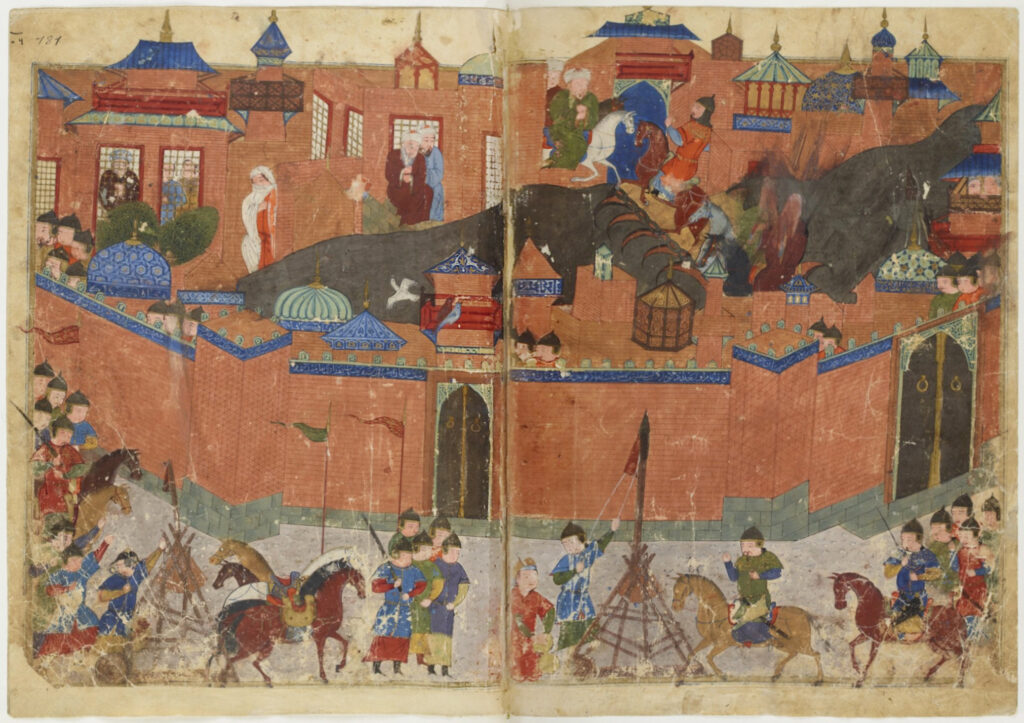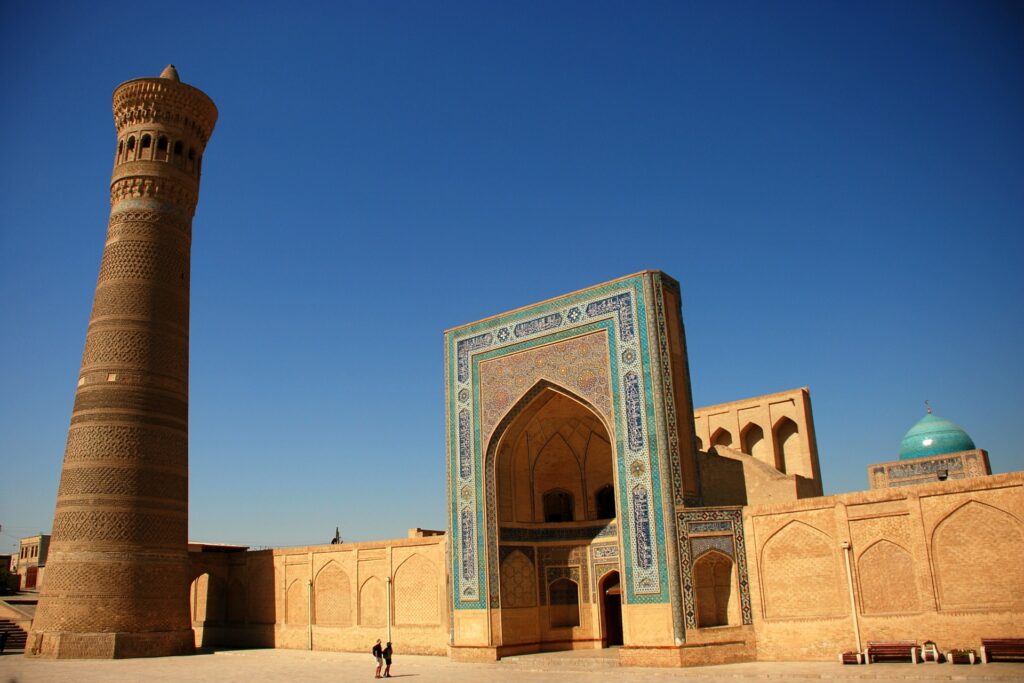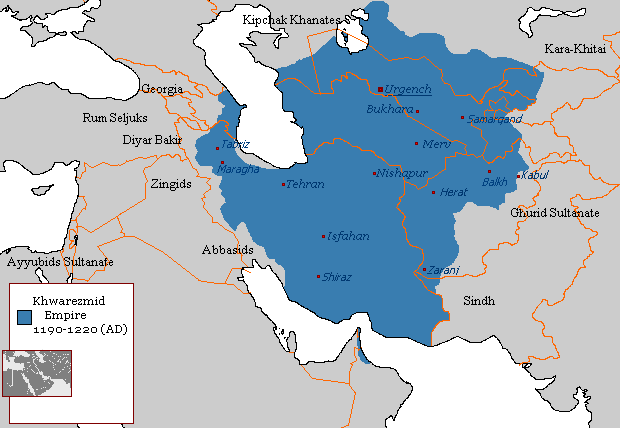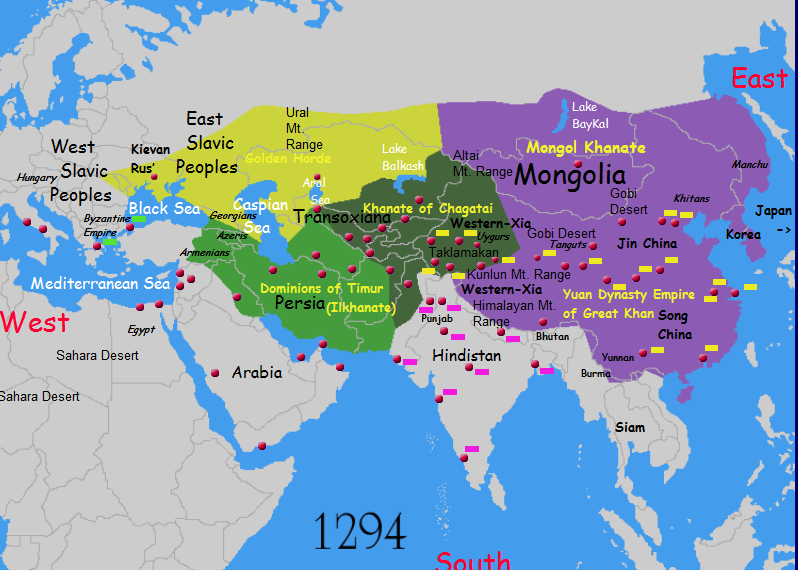From Mongols invasions, most Muslims know about the sack of Baghdad.
But learning about events doesn’t help that much. Events rarely repeat themselves.
It is unlikely that Mongols invade Muslim lands twice.
Even though history rarely repeats itself, something keeps coming back over and over again.
It’s people’s behaviors and attitudes under certain circumstances.
The Quran, for example, is not a book of history, but it contains historical events.
Whether it’s the story of Noah or the one of the Pharaoh, which part of the story Allah highlights the most?
Behaviors and attitudes. The arrogance of people when they hear the message and their regrets when they see the punishment.
So we learn history to avoid the negative results of people before us.
And at the same time, we want to repeat the behaviors and attitudes that lead to success.
If we do forget about our history, we condemn ourselves to relive the tragic events of the past.
Terror in the Hearts

The historian Ibn Al-Athir lived in Mosul (a city in today’s Iraq).
At that time, it was off the Mongol conquest. But not far from it.
He recorded the accounts of refugees in his book The Complete History (Al Kamil fi al-Tarikh):
“Stories have been related to me, which the hearer can scarcely credit, as to the terror of the Tatars (another word for Mongols), which God Almighty cast into men’s hearts; so that it is said that a single one of them would enter a village or a quarter wherein were many people, and would continue to slay them one after another, none daring to stretch forth his hand against this horseman.”
When I read this, two things about the Jews popped into my mind.
The first one was from Ordinary Men, a book about the final solution in Poland. It showed that some trains filled with 8000 Jews were guarded only by 10 men!
Even with bare hands, they could overcome 10 policemen.
But when terror is in the hearts, all it’s left is paralysis.
The second one is the incident with the Jews of Medina at the time of the Prophet.
Here’s what Allah said about it:
“It is He who expelled the ones who disbelieved among the People of the Book from their homes at the first gathering. You did not think they would leave, and they thought that their fortresses would protect them from Allah; but [the decree of] Allah came upon them from where they had not expected, and He cast terror into their hearts [so] they destroyed their houses by their [own] hands and the hands of the believers. So take a lesson from this, O people of insight!”. [Quran 59:2]
Muslims taught their fortresses would protect them. I’m afraid they forgot about this lesson.
We Can Burn a Library, But We Can’t Burn an Attitude
The legacy of Muslims is to build libraries.
The libraries of Baghdad weren’t there for decoration.
It’s crazy how we highlight their destruction but not the attitude of Muslims towards knowledge.
Muslims were book lovers.
In the libraries of Baghdad, there were more than five centuries of cumulated knowledge.
It ranges from books going back to the time of the Prophet (PBUH) to Greek knowledge.
A precious knowledge was lost.
But it’s not the first time that something similar happened.
To this day, there are remnants of ancient civilizations we are unable to understand.
When we say that some knowledge is forever lost, it’s partially true.
The ultimate source of all knowledge is still here and will always be here.
We need to recover our attitude towards knowledge and connect to the source.
If we do it, the rest will follow.
The Higher You Get, The More Dangerous Is the Fall
There’s no safe status in Islam.
Going towards Allah is moving upward and against gravity.
But gravity will always be here.
So the moment we start weakening the relationship with Allah, the free fall begins.
The Muslim lands of the thirteen century were the richest countries in the world.
They were so rich that Mongols didn’t bother to invade Europe for they poverty they found there.
Muslims were also the most sophisticated in every branch of knowledge.
They had the world’s highest levels of literacy.
While in Europe only priests knew how to read, Muslim lands had literate people even in villages.
But all this knowledge didn’t prevent Muslims from being crushed.
As Umar ibn al-Khattab said:
“Verily, we were a disgraceful people and Allah honored us with Islam. If we seek honor from anything besides that with which Allah honored us, Allah will disgrace us.”
Paying the Price
In 1219, the Mongols began their conquest of the Khwarazmian Empire (a large part of present-day Central Asia, Afghanistan, and Persia.)
The trigger was the killing of Genghis Khan envoys (merchants and ambassadors) by the Sultan of Khwarizm.
The Mongols believed in the absolute inviolability of ambassadors.
Whether this event was an excuse or not, the conquest of Central Asia turned into revenge.
Genghis Khan entered the city of Bukhara. He assembled the elite in the largest mosque and lectured them about their sins and misdeeds:
“It is the great ones among you who have committed these sins. If you have not committed great sins, God would not have sent a punishment like me upon you.”
More than a century later, when the Moroccan traveler, Ibn Battuta, passed through the region, he reported:
“Its mosques, colleges, and bazaars are in ruins…There is not one person in it today who possesses any religious learning or who shows any concern for acquiring it.”
This is how the center of religious piety and the “delight to all Islam” was reduced to ashes.
In the city of Imam Bukhari, Qurans served as litter for the Mongols horses.
Whatever the reasons for the fall of Bukhara, it wasn’t a coincidence.
Being a Muslim is not a protection against this kind of event.
If we are neglectful, we’ll pay the price like any other nation.
Muslims Unity: An Everlasting Problem

It’s not that the Mongols were invincible.
It’s the absence of a united front that made it easy for Mongols to crush the Muslims.
At the top of the world, Muslims were blessed with wealth and knowledge.
But despite that, they were divided – political rivalries, religious tensions, cultural hatred.
The invasion of the Khwarizm empire is closely related to the divisions of Muslims.
The sultan of Khwarizm was a Turk who had tense relations with the Arab Caliph of Baghdad.
The population of his empire was mainly Persians and Tajiks. They had no attachment either to the ruler or the Turkic soldiers. In return, soldiers didn’t want to risk their lives for them.
But didn’t Islam already solve these racial issues?
Didn’t Allah give a higher purpose to each Muslim, superseding personal interests?
It’s not like Islam never talked about these topics. But let’s move on.
I try to get my head around this concept of unity.
Every Muslim wants it, but no one knows what it means.
Without knowing what it is, we can never achieve it.
The best example of unity I could think of is families.
Family members have different personalities, follow different paths, and rarely agree about everything. They can even fight each other.
But when something serious hits one of the members, everyone comes together.
A group can face anything; a single person can not.
“Obey Allah and His Messenger and do not dispute with one another, or you would be discouraged and weakened. Persevere! Surely Allah is with those who persevere.” [Quran 8:46]
When we lose sight of the higher purpose that can unite us, we become easy prey.
The Preaching of Islam
In less than a hundred years after the fall of Baghdad, all Mongol leaders in the western part of the empire accepted Islam.
Out of the four divisions of the Mongol empire, only one embraced Buddhism (corresponding to modern China). The rest converted to Islam.
How Mongols embraced the faith of those Muslims they had crushed is a mystery.
We just know about some famous Mongols converts.
In The Preaching of Islam, Sir Thomas Walker Arnold gives details on how Islam spread among the Mongols.
Berke Khan, the grandson of Genghis Khan and ruler of the Golden Horde, was the first prominent Mongol to convert.
It is said he owed his conversion to two merchants from Bukhara.
He entered an alliance with the Mamluks of Egypt and fought his cousin Hulagu Khan, the destroyer of Baghdad.
Berke’s successors Töde-Möngke and Özbeg, after whom Uzbekistan is named, also converted to Islam.
A direct descendent of Hulagu, Mahmud Ghazan was the first to officially declare Islam as the religion of his Ilkhanate.
The Chagatai Khanate was the third to accept Islam. It started with Tarmashirin Khan and became more permanent with Tughlugh Timur Khan.
In the conversion of Mongols, it seems like everyone participated without coordination. Merchants, captive Muslim women, and spiritual guides with their disciples.
Mongols were shamanists. They believed in the Eternal Blue Sky and worshipped spirits.
Not only Muslims wanted to convert them. Buddhists and Christians wanted the same.
In this competition, Islam was the underdog. Its centers of learning were destroyed and many pious people were killed or made captive.
Even though Islam was at its lowest point, Allah took care of it.
The destroyers of Islam became its defenders.
Final Thoughts on Mongols
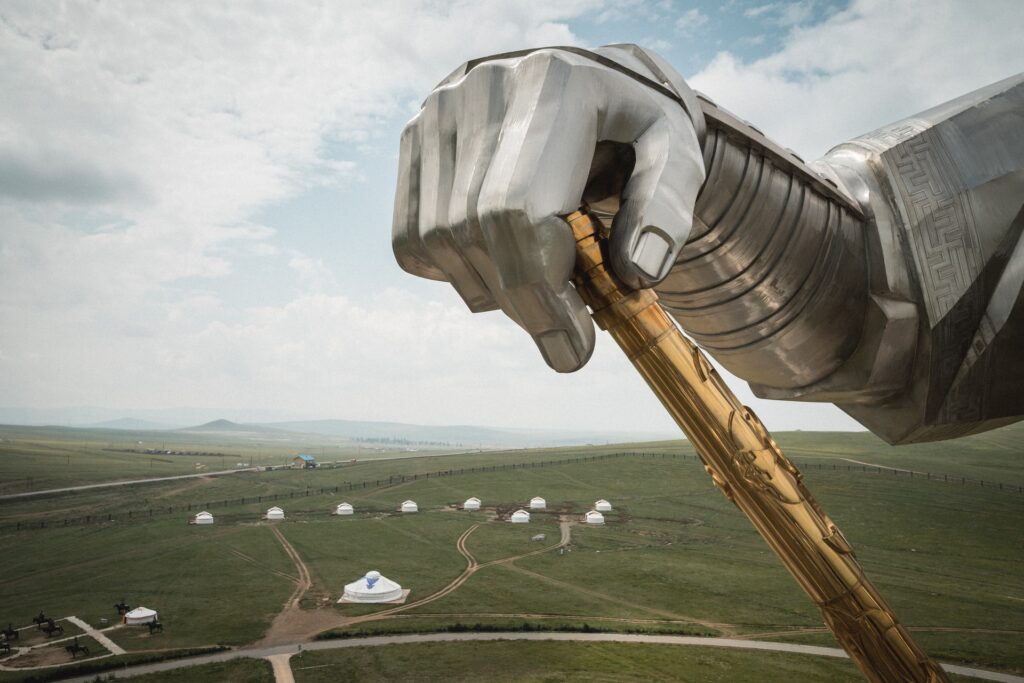
There’s no simple answer for the fate of Islam during Mongol invasions.
History is often the combination of many events happening at once.
Genghis Khan wasn’t just a terrific warrior, he was also a master in using propaganda.
He spread fear and the belief in Mongols’ invincibility.
Some Muslims thought Mongols were Gog and Magog; that they were not humans.
It also seems that Muslims were having good times. They became insensitive to warnings.
Mongols came from a tough lifestyle; Muslims enjoyed luxury and it made them weak.
There’s more to say about Mongols and Islam that I can fit in this article.
From time to time, Mongols are still used as scapegoats for other nations’ failures.
In the introduction of Genghis Khan and the Making of the Modern World, we learn that whenever a nation falls behind, it accuses the Mongols.
Russia did. So China, India, Persia, or the Arabs.
Scapegoats won’t help the Muslims of today. Knowing history will.
By learning our history, we can adopt the right behaviors and attitudes to avoid deadly mistakes.
Article posted the 5 April 2021
Popular Articles
- 7 Lessons from Luqman that Will Make You Wise
- How to Enjoy Salat and Make it Meaningful
- Mongols Invasions: Some Forgotten Lessons to Today’s Muslims
- For or Against Vaccines? That’s Not Really the Question
- Are Muslims Meant to Be Sleep Deprived?
- Islamic Psychology: A Model Where Faith Has Its Place
- Muslims Judging Each Other: Why and How to Be Less Judgy
- The Certainties of Muslims in Uncertain World
- Allah According to Allah: The Beauty Behind the Verse of Light
- Blindness: From the Invisible Gorilla to the Quranic Perspective
- How to Make People Change their Mind: Persuasion!

